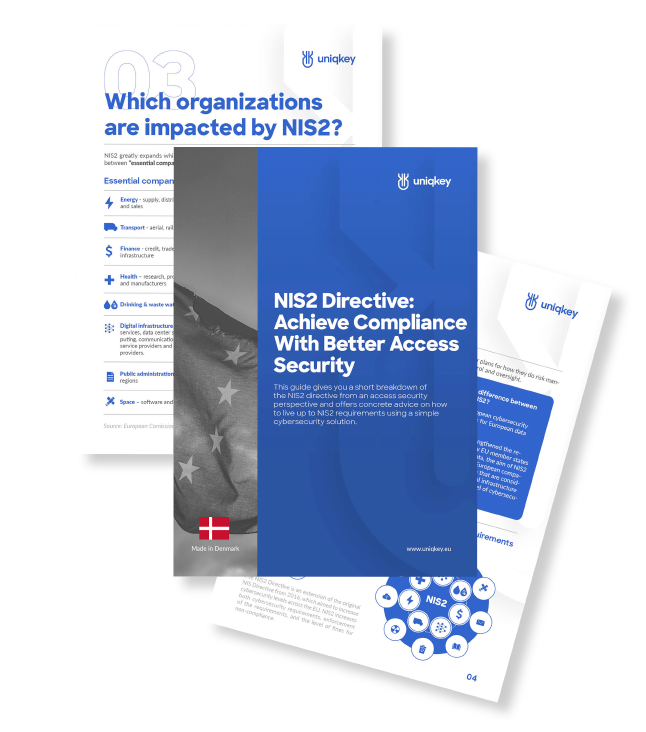ESSENTIAL ENTITY
Health Sector
Learn how the NIS2 directive affects organizations in the health sector.
The Health Sector
Consisting of both public and private healthcare providers, medical equipment and medicine manufacturers, medical insurance providers and other critical health-related services, the healthcare sector is a cornerstone of European society and economy.
With the potential for fatal real-life consequences in case of a successful cyberattack, the sector is deemed essential under the NIS2 Directive, subjecting it to the Directive’s toughest requirements and obligations.
Annual Expenditure
€1073B
Annual governmental health expenditure in Europe.
Health Jobs in europe
14.3MM
People employed in the European healthcare sector.
Key Cybersecurity Challenges For The Health Sector
Lack of Standardization
The health sector is fragmented, with different organizations using different systems, which makes it hard to enforce consistent security measures.
Sensitive Information
Healthcare organizations handle sensitive information, such as patient names, addresses, and medical histories, which is very valuable to cybercriminals.
Aging Technoloy
Many healthcare organizations still use outdated systems and technology, making them increasingly vulnerable to cyberattacks.
Insufficient Resources
Many healthcare organizations have limited resources to invest in cybersecurity. This results in understaffed IT teams, which struggle to keep up with threats.
Interconnected Systems
Healthcare organizations use interconnected systems. This interconnectivity increases the risk of attacks as a single breach can have broad consequences.
Employee Training
Healthcare employees may not receive sufficient cybersecurity training, which can increase the risk of human error and security breaches.
The Implications of NIS2 For The Health Sector
Holding the lives of others in their hands, companies and organizations operating in the healthcare sector have a great responsibility to ensure the security of their services and the safety of their customers and patients. With its clear focus on enforcing stricter cybersecurity standards for essential service operators, NIS2 has a wide range of implications for entities in this sector.

PROTECTION OF PATIENT DATA
The protection of patient data is essential in the health sector, as a breach can compromise sensitive information, possibly resulting in harm to individuals and damage to the reputation of the orgnanization. NIS2 requires healthcare organizations to protect patient data from cyber threats by implementing cyber risk management measures, having a clear incident-reporting process, and securing patient data through proper storage and handling practices.
PREVENTION OF HEALTH SERVICE DISRUPTION
A successful cyberattack on healthcare providers could lead to downtime or failure of crucial systems, impacting the delivery of medical services. The Directive mandates the implementation of measures to minimize the risk of such disruptions and ensure the continuity of essential healthcare services. This may include regular testing and updates of cybersecurity systems, staff training on cyber hygiene, and incident response planning.
COMPLIANCE AND ENFORCEMENT
Healthcare organizations are subject to strict data privacy regulations, such as the General Data Protection Regulation (GDPR) and the Health Insurance Portability and Accountability Act (HIPAA), which protect patient privacy and data. NIS2 adds an additional layer of cybersecurity regulations that healthcare organizations must comply with, which can be challenging.
IMPACT ON THE HEALTHCARE INDUSTRY
The implementation of the NIS2 directive has the potential to increase the cost of healthcare delivery, as organizations may need to invest in new technologies and processes to comply with the Directive. However, in the long term, it is expected to lead to enhanced security, better protection of patient data, and increased trust in digital healthcare services.
Get NIS2 Complaint (Whitepaper):
Time is running out to comply with NIS2 regulations. Starting your compliance journey sooner rather than later is crucial.
A typical NIS2 compliance process, including security assessments, auditing, consulting, and tool implementation, takes approximately 12 months.
For practical advice on how to comply with the requirements, check out our NIS2 white paper.

